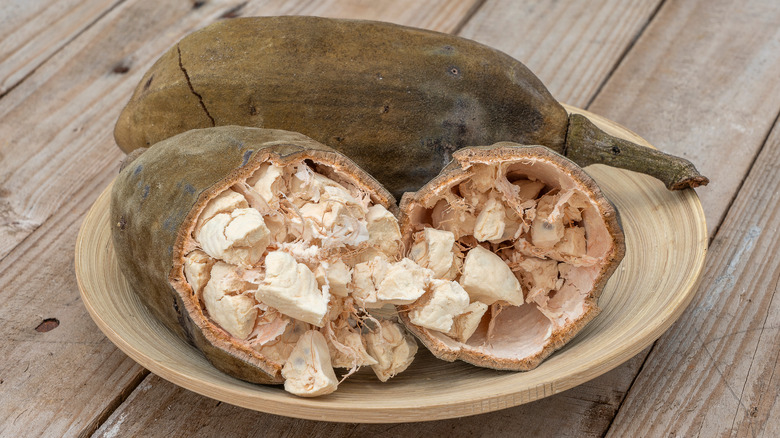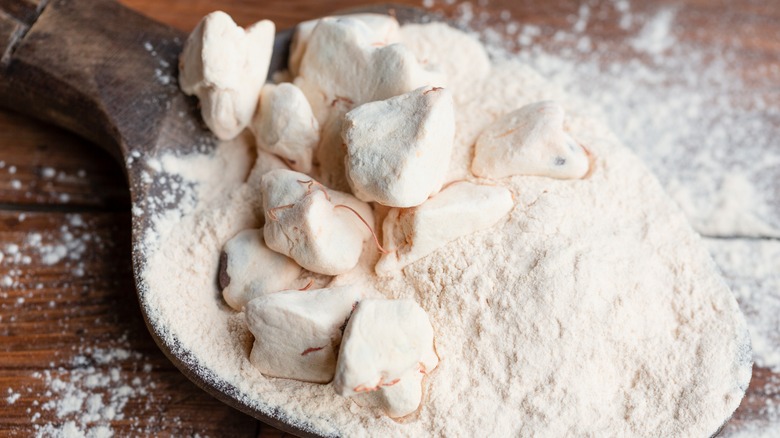Everything You Need To Know About Baobab Fruit
Baobab fruit originates from Africa and is also known as "monkey bread" or "cream of tartar tree". The fruit is becoming increasingly popular in the Western world for its nutritional benefits (via Medical News Today). It grows on the baobab tree, which also grows in Australia and the Middle East. The baobab fruit has a hard outer shell that protects the vitamin-rich pulp inside. The pulp is typically dried and powdered, making it easy to add to smoothies, yogurt, cereal, and more.
Baobab fruit is an excellent source of vitamins C and B6, as well as potassium and magnesium. It also contains dietary fiber, which can help promote digestive health. The unique flavor of baobab fruit has been described as tart and lemony with hints of vanilla (via BBC News). Baobab fruit is a good choice for those looking for an alternative to sugary snacks or drinks. The fruit is naturally sweet and can help satisfy cravings without the added sugar. It is important to note that not many studies have been done on baobab fruit to support or reject the health claims made about it.
Other health benefits of baobab fruit
Baobab fruit can be helpful for anyone trying to lose weight. According to Healthline, this fruit has been shown to increase feelings of fullness thanks to a high amount of dietary fiber. Fiber is helpful for weight loss because it slows down digestion and keeps you feeling fuller for longer. Baobab fruit is also a low-calorie food and contains no fat. Baobab fruit can also help balance blood sugar levels and prevent blood sugar spikes and crashes. Additionally, the antioxidants and polyphenols can fight inflammation in the body. This, in turn, can help reduce the risk of chronic diseases such as heart disease and diabetes.
Baobab fruit is generally considered safe for most people. However, some people may experience an upset stomach or diarrhea when consuming large amounts of dietary fiber. It is always best to start with a small amount of any new food and increase slowly to avoid gastrointestinal issues. Additionally, baobab fruit contains sorbitol, which is a type of sugar alcohol that can cause bloating and gas in some people. Those with irritable bowel syndrome (IBS) may want to avoid baobab fruit or consume it in moderation.


